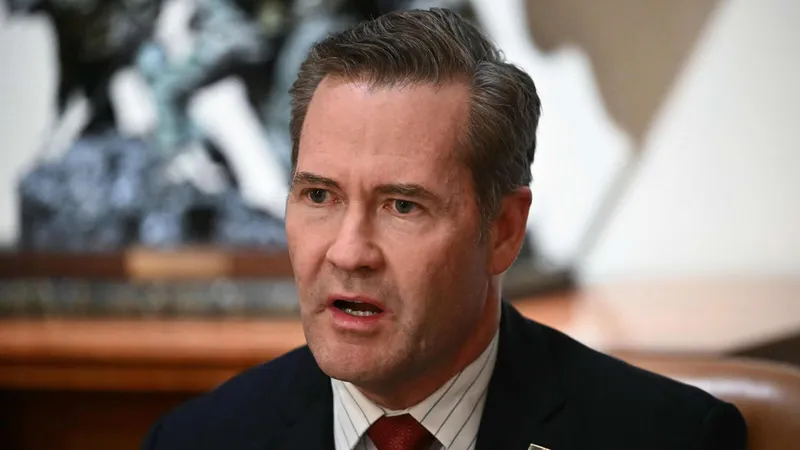National Security Adviser Michael Waltz admitted he was responsible for a leaked Signal group chat that inadvertently included a journalist. The chat revealed sensitive details about U.S. airstrikes on Yemen’s Houthi rebels—information that quickly reached the public and triggered sharp political fallout. Waltz confirmed his role during an appearance on The Ingraham Angle that night, saying, “I take full responsibility.” The group chat—intended only for senior Trump administration officials—accidentally included The Atlantic’s editor-in-chief, Jeffrey Goldberg, who later published a detailed account of the discussions.

Michael Waltz, 51, is no stranger to high-stakes environments. A former Green Beret and Florida Congressman, he has served as Donald Trump’s National Security Adviser since January 2025. Known for his assertive stance on Iran and proxy groups like the Houthis, Waltz had been tasked with aligning Trump’s national security team on key foreign policy issues. To that end, Waltz created a Signal chat titled “Houthi PC Small Group” to coordinate with top officials such as Vice President JD Vance, Defense Secretary Pete Hegseth, Secretary of State Marco Rubio, and CIA Director John Ratcliffe, according to The Atlantic.
According to reporting from The Atlantic, Waltz mistakenly sent Goldberg a Signal group invite on March 11, thinking he was someone else. Goldberg quietly joined the “Houthi PC Small Group” two days later and remained in the chat while highly sensitive discussions unfolded. On March 15, Pete Hegseth reportedly shared weapons packages, target locations, and timing for upcoming strikes—two hours before the attacks were carried out. JD Vance voiced skepticism about the mission, reportedly saying it would “bail out Europe’s trade lanes, not America’s,”.
Goldberg published his account on March 24. Waltz acknowledged the mistake the following evening during his Fox News appearance, stating, “I built the group,” and clarifying, “A staffer wasn’t responsible.” He claimed Goldberg’s number had replaced someone else’s contact in his phone but declined to say who. “It’s embarrassing,” he admitted.
Timeline of the Incident
-
March 11: Waltz mistakenly invites Goldberg to the Signal chat.
-
March 13: Goldberg joins the group.
-
March 15: Operational details about Yemen airstrikes are shared within the chat.
-
March 24: The Atlantic publishes Goldberg’s exposé.
-
March 25: Waltz addresses the incident on Fox News.
-
March 26: Political fallout continues across platforms, including social media and major news outlets.
The leak may not have involved classified material, but its timing—just hours before a military operation—raised serious concerns about internal communication and vetting procedures. White House Press Secretary Karoline Leavitt told “no war plans” were shared, though operational specifics clearly made their way to the press.
Waltz has insisted the error was a phone contact mix-up. Speaking with Laura Ingraham, he said, “Have you ever had somebody’s name show up with someone else’s number?” He also claimed he doesn’t personally know Goldberg, stating, “I didn’t see this loser in the group,” according to Fox News. Trump offered a slightly different take, telling NBC News on March 25 that it was “one of Michael’s people” who made the mistake. Waltz has denied that narrative, standing by his statement that it wasn’t a staffer’s fault. The incident has triggered internal reviews. Waltz has reportedly consulted with Elon Musk’s team for technical analysis, according to The Independent. Democratic leaders are calling for accountability. Senator Mark Warner called the situation “incompetence” and questioned how operational details could be shared in such a casual, unsecured way—even on encrypted platforms. Trump, however, downplayed the situation, saying the leak had “no impact at all,”.
Trump has publicly defended Waltz, stating, “He’s a good man who learned a lesson,” and has no plans to remove him. House Speaker Mike Johnson echoed that sentiment, calling Waltz “trustworthy,” according to Politico. Senator Ron Wyden has called for resignations. Despite the backlash, Waltz is standing firm. He has doubled down on consulting top technical teams and maintains that the Yemen strikes achieved their objectives—namely, restoring maritime flow and targeting Houthi command.

